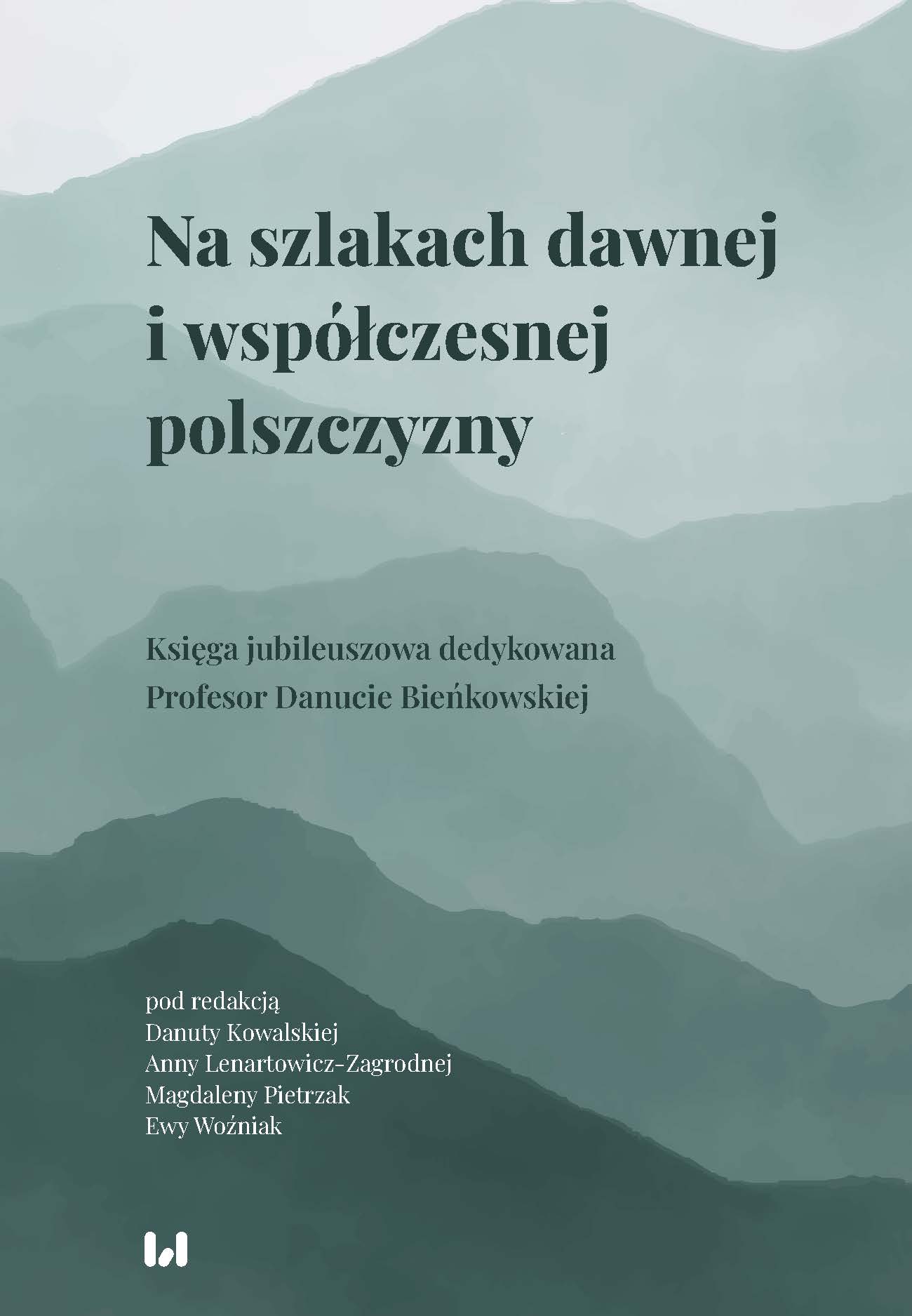Dystrybucja tekstowa ekwiwalentów łac. massa, gr. φύραμα (Rz 11:16, 1Kor 5:6, Gal 5:9) w dwu redakcjach Nowego Testamentu Jakuba Wujka (1593 i 1599) na tle pozostałych polskich przekładów renesansowych. Dwie strategie translacyjne
Textual distribution of equivalents of Greek φύραμα or Latin massa (Rom 11:16, 1 Cor 5:6, Gal 5:9) in two editions of the New Testament by Jakub Wujek (1593 and 1599) against the background of other Polish Renaissance New Testament renderings.
Author(s): Tomasz Lisowski
Subject(s): Christian Theology and Religion, Language and Literature Studies, Historical Linguistics, Comparative Linguistics
Published by: Wydawnictwo Uniwersytetu Łódzkiego
Keywords: Polish Renaissance New Testament renderings; Polish quivalents of Greek φύραμα or Latin massa; textual distribution of equivalents; tranlation strategies
Summary/Abstract: The meaning of the Greek lexeme φύραμα (or Latin massa) in Rom 11:16, 1 Cor 5:6 and Gal 5:9 - ‘any substance mixed with water and kneaded; a mass, lump’ – only generally indicates the referent. Therefore, in Polish biblical Renaissance translations, it has several synonymous equivalents: ciasto – przymieszanie – rozczyna – rozmieszenie – zaczynienie – zadziałanie – zamies – zamieszanie.In the New Testament of Jakub Wujek from 1593 (Wuj93) there are three of them: ciasto, zaczynienie, zadziałanie. Textual distribution of equivalents of Greek φύραμα or Latin massa in Wuj93 is a result of a philological translation strategy, which consits in revealing the meaning of the Latin translation text basis also by confronting it with the Greek New Testament text. The equivalent ciasto is attested in earlier Catholic renderings of 1556 and 1561. The other two equivalents are attested in Protestant New Testament renderings –zaczynienie in the Anti-Trinitarian one from 1577, zadziałanie in the Calvinist one from 1563. The textual provenance of these equivalents are less relevant to their semantic adequacy in specific biblical contexts.However, in the New Testament in the Bible of Jakub Wujek from 1599 (Wuj99) in all biblical contexts only one equivalent was used: ciasto, attested in the earlier Catholic renderings. The Jesuit censorship commission led by Stanisław Grodzicki, which revised Jakub Wujek's translation, chose a literal translation strategy. The rendering should be strictly in line with the Latin Clementine Vulgate (1592). As a result, the contextual synonymous equivalents of Latin massa (i.e. ciasto, zaczynie, zadziałanie) were replaced with one lexeme only (i.e. ciasto).
- Page Range: 71-87
- Page Count: 17
- Publication Year: 2023
- Language: Polish
- Content File-PDF

